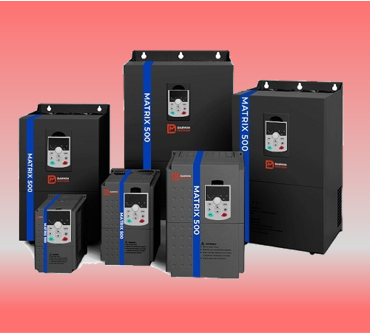Posted on 16th Jul 2024

In today's industrial landscape, optimizing energy efficiency isn't just about meeting regulatory standards—it's about staying competitive and reducing operational costs while minimizing environmental impact. At the heart of this pursuit lies the Darwin Motion Adjustable Speed Drive (ASD), renowned for its exceptional part-load efficiency and transformative impact on energy management strategies.
Part-load efficiency refers to how well a motor or drive system performs when operating at less than full capacity. In industrial settings, equipment often operates under varying loads throughout the day, making part-load efficiency a critical consideration for energy-conscious businesses. Traditional fixed-speed motor systems tend to operate inefficiently at reduced loads, leading to unnecessary energy consumption and increased operating costs.
Darwin Motion ASDs are designed to excel in scenarios where equipment operates at less than full capacity. Here's how they achieve superior part-load efficiency:
Variable Speed Control: Unlike fixed-speed motors, Darwin Motion ASDs adjust motor speed based on real-time demand. By matching motor speed precisely to the required load, ASDs minimize energy waste associated with over-speeding and throttling losses.
Energy Savings: The ability to operate efficiently at part loads translates into significant energy savings for industries. Darwin Motion ASDs reduce energy consumption during periods of lower demand, contributing to lower utility bills and a reduced carbon footprint.
Enhanced System Reliability: ASDs not only improve energy efficiency but also enhance the reliability and longevity of equipment. By reducing stress on motors and associated components, Darwin Motion ASDs contribute to fewer breakdowns and lower maintenance costs over time.
Adaptive Control Algorithms: Darwin Motion ASDs incorporate advanced control algorithms that optimize performance across varying load conditions. These algorithms enable seamless transitions between different operating states while maintaining peak efficiency.
The benefits of Darwin Motion ASDs extend across a wide range of industries and applications:
Manufacturing: From conveyor systems to pumps and compressors, ASDs optimize energy consumption in manufacturing processes where loads fluctuate throughout production cycles.
HVAC Systems: In buildings and facilities, ASDs control the speed of fans and pumps based on fluctuating heating, cooling, and ventilation needs, ensuring comfort while minimizing energy usage.
Water and Wastewater Treatment: ASDs play a crucial role in regulating the flow rates of pumps and blowers in water treatment plants, improving operational efficiency and reducing energy costs.
Renewable Energy: ASDs support the integration of renewable energy sources by managing variable output from solar panels and wind turbines, contributing to grid stability and sustainability.
Darwin Motion Adjustable Speed Drives are not just a technological advancement—they represent a strategic investment in energy efficiency and sustainability. By optimizing part-load efficiency and reducing energy waste, Darwin Motion ASDs empower industries to achieve operational excellence while meeting their environmental goals.
In summary, Darwin Motion continues to lead the charge in delivering innovative solutions that redefine energy management practices across diverse sectors. As businesses prioritize efficiency and sustainability, Darwin Motion ASDs stand as a testament to the power of intelligent engineering in shaping a more resource-efficient future.
For more information on how Darwin Motion ASDs can enhance your operations' efficiency, visit Darwin Motion's website or contact us today.
Harness the power of efficiency with Darwin Motion Adjustable Speed Drives—driving industries forward, sustainably.